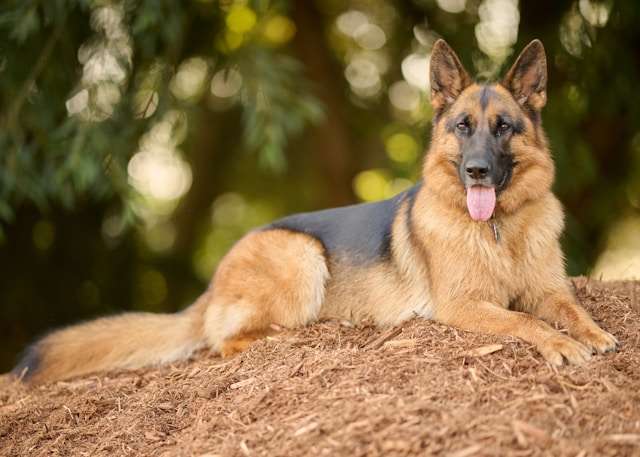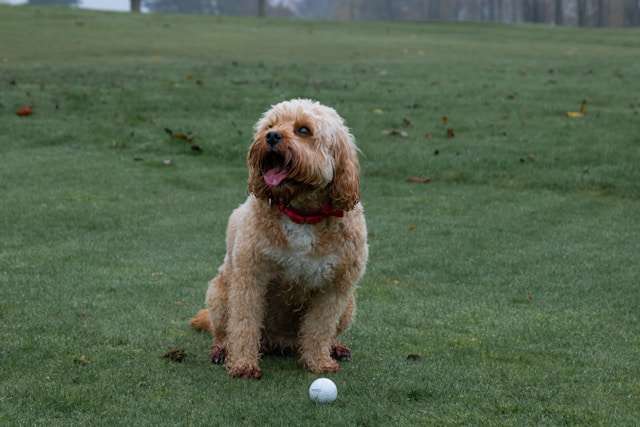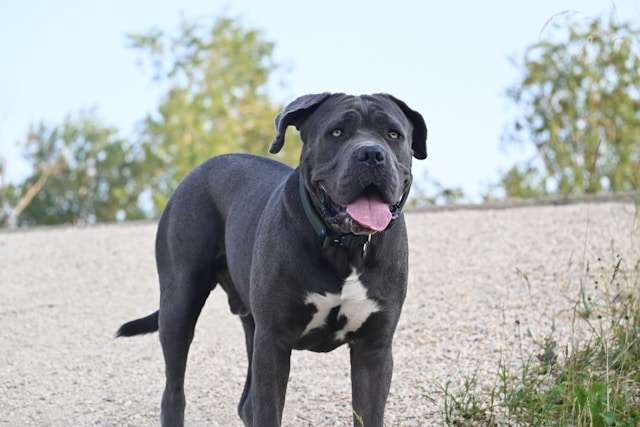Are Boston Terriers Good Dogs? A Comprehensive Look

Are Boston Terriers good dogs? Boston Terriers have captured the hearts of many dog lovers with their charming personalities and distinctive tuxedo-like markings.
These compact, friendly dogs are often called the “American Gentleman” due to their dapper appearance and polite demeanor.
Thanks to their adaptable nature and affectionate temperament, Boston Terriers are considered excellent dogs for families, singles, and seniors.
Boston Terriers excel as companion animals, offering a perfect blend of playfulness and calm. Their small size makes them suitable for various living situations, from apartments to houses with yards. While they have a lively spirit, they don’t require excessive exercise, making them a good fit for those with a more relaxed lifestyle.
Table of Contents
Key Takeaways
- Boston Terriers are adaptable, friendly companions suitable for various households.
- They have a generally healthy disposition with a lifespan of 11-15 years
- Boston Terriers are recognized for their impeccable manners and affectionate nature
The Boston Terrier at a Glance
Boston Terriers are charming small-breed dogs known for their distinctive tuxedo-like markings and friendly personalities. These compact companions are well-suited for various living situations and make excellent family pets.
Breed Characteristics
Boston Terriers have a unique appearance that sets them apart. They sport a short, smooth coat, typically black with white markings, though some may have seal coloration. Their compact body is muscular and well-proportioned.
We recognize these dogs by their distinctive square heads and large, expressive eyes. Boston Terriers usually weigh between 10 and 25 pounds and stand 15 to 17 inches tall at the shoulder.
Boston Terriers’ short muzzles give them a charming, almost human-like expression. Their erect ears add to their alert and attentive appearance.
Temperament
Boston Terriers are known for their friendly and affectionate nature. They thrive on human companionship and often form strong bonds with their families.
Boston Terriers are intelligent and relatively easy to train. They are generally good with children, making them excellent family pets.
We appreciate their playful and lively disposition. They often maintain a puppy-like enthusiasm well into adulthood.
Boston Terriers are usually agreeable with other pets when properly socialized. Early socialization is critical to ensuring they develop into well-rounded adults.
Their loyalty and desire to please make them wonderful companions for various households.
Adaptability
Boston Terriers excel in adapting to different living situations. Their small size and moderate exercise needs make them well-suited for apartment living.
We find they do well in both urban and suburban environments. Boston Terriers can adapt to homes with or without yards if they receive regular exercise and mental stimulation.
Due to their short muzzles, these dogs are sensitive to extreme temperatures and require protection from both hot and cold weather.
Boston Terriers are generally quiet, which makes them good neighbors in close living quarters. Their adaptable nature allows them to thrive in various household compositions, from single owners to large families.
Health and Well-Being
Boston Terriers are generally healthy dogs but can face specific breed-specific health issues. Proper care and regular veterinary check-ups are crucial for maintaining their well-being and maximizing their lifespan.
Common Health Issues
Boston Terriers are prone to respiratory problems due to their brachycephalic (flat-faced) structure. This can lead to snoring, wheezing, and difficulty breathing in hot or humid conditions.
Eye conditions are another concern for the breed. They may develop cataracts, glaucoma, or corneal ulcers. Regular eye examinations are essential to catch these issues early.
Patellar luxation, a condition where the kneecap dislocates, can affect Boston Terriers. Some may also experience deafness, either partial or complete.
Lifespan and Care
With proper care, Boston Terriers typically live 11-13 years. We recommend regular veterinary check-ups to monitor their health and catch any issues early.
Their short coat requires minimal grooming, but regular brushing helps control shedding. Dental care is vital to prevent tooth and gum problems.
A balanced diet tailored to their age and activity level is crucial. Boston Terriers can be prone to obesity, so monitoring their food intake is essential.
We strongly advise considering pet insurance to help manage potential health costs. This can provide peace of mind and ensure your Boston Terrier receives the necessary care.
Training and Mental Stimulation
Boston Terriers are intelligent and eager to please, making them responsive to training. They require regular exercise and mental stimulation to stay happy and well-behaved.
Trainability
Boston Terriers are generally easy to train due to their intelligence and desire to please their owners. We recommend using positive reinforcement techniques, as these dogs respond well to praise and rewards. Early socialization is crucial for developing a well-rounded Boston Terrier.
Obedience training should start early and be consistent. These dogs can excel in various dog sports, including agility, which provides mental and physical stimulation.
While generally eager to learn, Boston Terriers can occasionally display stubbornness. Patience and persistence are key in overcoming any training challenges.
Exercise Requirements
Boston Terriers have moderate exercise needs. We suggest providing them with daily physical activity to maintain their health and prevent behavioral issues. A mix of walks, playtime, and interactive games can fulfill their exercise requirements.
These dogs typically have bursts of high energy, so incorporating short play sessions throughout the day can be beneficial. Mental stimulation is equally essential for Boston Terriers. Puzzle toys, training sessions, and learning new tricks can help keep their minds sharp.
As dogs age, their exercise needs may change. It’s important to adjust activities based on each dog’s health and energy levels.
Living with a Boston Terrier
Boston Terriers are adaptable companions that thrive in various home environments. Their friendly nature and moderate energy levels make them suitable for different lifestyles, but they do have specific needs to consider.
The Ideal Home Environment
Boston Terriers, due to their small size, adapt well to apartment living. We recommend providing a comfortable indoor space with cozy bedding and toys. These dogs are sensitive to extreme temperatures, so maintaining a moderate indoor climate is crucial.
Boston Terriers need daily exercise, but their requirements are not excessive. A few short walks or play sessions each day usually suffice. They enjoy interactive toys and games that stimulate their minds.
As family pets, Boston Terriers are affectionate and good with children. They thrive on human companionship and may develop separation anxiety if left alone for long periods. We suggest gradually acclimating them to alone time and providing engaging activities when you’re away.
Behavioral Traits
Boston Terriers are known for their friendly and playful nature. When properly socialized, they typically get along well with other pets. Early socialization is key to developing a well-rounded temperament.
These dogs can be vocal, but their barking is usually manageable with training. They’re generally not excessive barkers unless provoked or anxious.
Boston Terriers have a moderate energy level. They enjoy playtime but also appreciate lounging with their owners. They adapt to their family’s lifestyle, making them suitable for active households and those preferring a more relaxed pace.
Their affectionate nature means they form strong bonds with their families. Combined with their intelligence, this trait makes them responsive to training and eager to please their owners.
Choosing and Caring for a Boston Terrier
Selecting and properly caring for a Boston Terrier requires careful consideration and ongoing attention. We’ll explore finding a reputable breeder and essential preventive health measures to ensure your Boston Terrier thrives.
Finding a Reputable Breeder
Finding a reputable breeder is crucial when searching for a Boston Terrier puppy. We recommend looking for breeders from recognized kennel clubs or breed organizations.
A responsible breeder will: • Allow you to visit their facility • Provide health clearances for the parents • Answer all your questions about the breed • Offer a health guarantee for the puppy.
Reputable breeders will also ask you questions to ensure their puppies go to suitable homes. They should be knowledgeable about the breed’s history, including famous Boston Terriers like Sergeant Stubby.
Be prepared to wait for the right puppy. Good breeders often have waiting lists and don’t always have puppies available immediately.
Preventive Health Measures
Keeping your Boston Terrier healthy involves regular veterinary check-ups and addressing breed-specific concerns. We advise scheduling annual exams to catch any potential issues early.
Boston Terriers are prone to eye problems, including cherry eye. Regular eye examinations are essential. Consider pet insurance to help manage potential health costs.
Proper nutrition is crucial. Feed your Boston Terrier high-quality dog food appropriate for their age and activity level. We recommend feeding adult Boston Terriers twice daily.
Exercise needs vary, but most Boston Terriers enjoy moderate daily activity. Regular walks and playtime help maintain their health and prevent obesity.
Early socialization is key for well-adjusted Boston Terriers. To build confidence, expose your puppy to various people, animals, and environments.
Frequently Asked Questions
Boston Terriers have distinct personality traits and care requirements. We’ll address common inquiries about their temperament, trainability, behavior with children, potential issues, maintenance needs, and suitability for apartment living.
What are the common temperament traits of Boston Terriers?
Boston Terriers are loyal and loving companions. They are also friendly and affectionate, often forming strong bonds with their family members.
These dogs are known for their intelligence and adaptability. They typically get along well with other pets and are comfortable in various living situations.
Can Boston Terriers be easily trained?
Boston Terriers are generally easy to train due to their intelligence and eagerness to please. They respond well to positive reinforcement techniques.
Consistency and patience are key when training these dogs. Short, frequent training sessions work best to maintain their attention and interest.
How do Boston Terriers generally behave around children?
Boston Terriers do well around children. Their gentle and playful natures make them excellent companions for families with children.
Supervising interactions between young children and Boston Terriers is important to ensure safe play. Teaching children how to handle and respect the dog properly is crucial.
What are some potential behavior problems in Boston Terriers?
Some Boston Terriers may develop separation anxiety if left alone for extended periods. This can lead to destructive behavior or excessive barking.
Some individuals are stubborn. Consistent training and socialization from an early age can help prevent or manage these potential problems.
Do Boston Terriers require a lot of maintenance?
Boston Terriers require relatively low maintenance. Their short coat requires minimal grooming, with occasional brushing to remove loose hair.
Regular nail trimming, teeth cleaning, and ear checks are essential. They may be prone to specific health issues, so routine veterinary check-ups are crucial.
Are Boston Terriers suitable for apartment living?
Boston Terriers are great apartment dogs. Their small to medium size and adaptability make them well-suited for compact living spaces.
Boston Terriers don’t require extensive exercise, but regular walks and playtime are necessary to keep them healthy and happy. They
can thrive in both urban and rural environments.







13 Comments